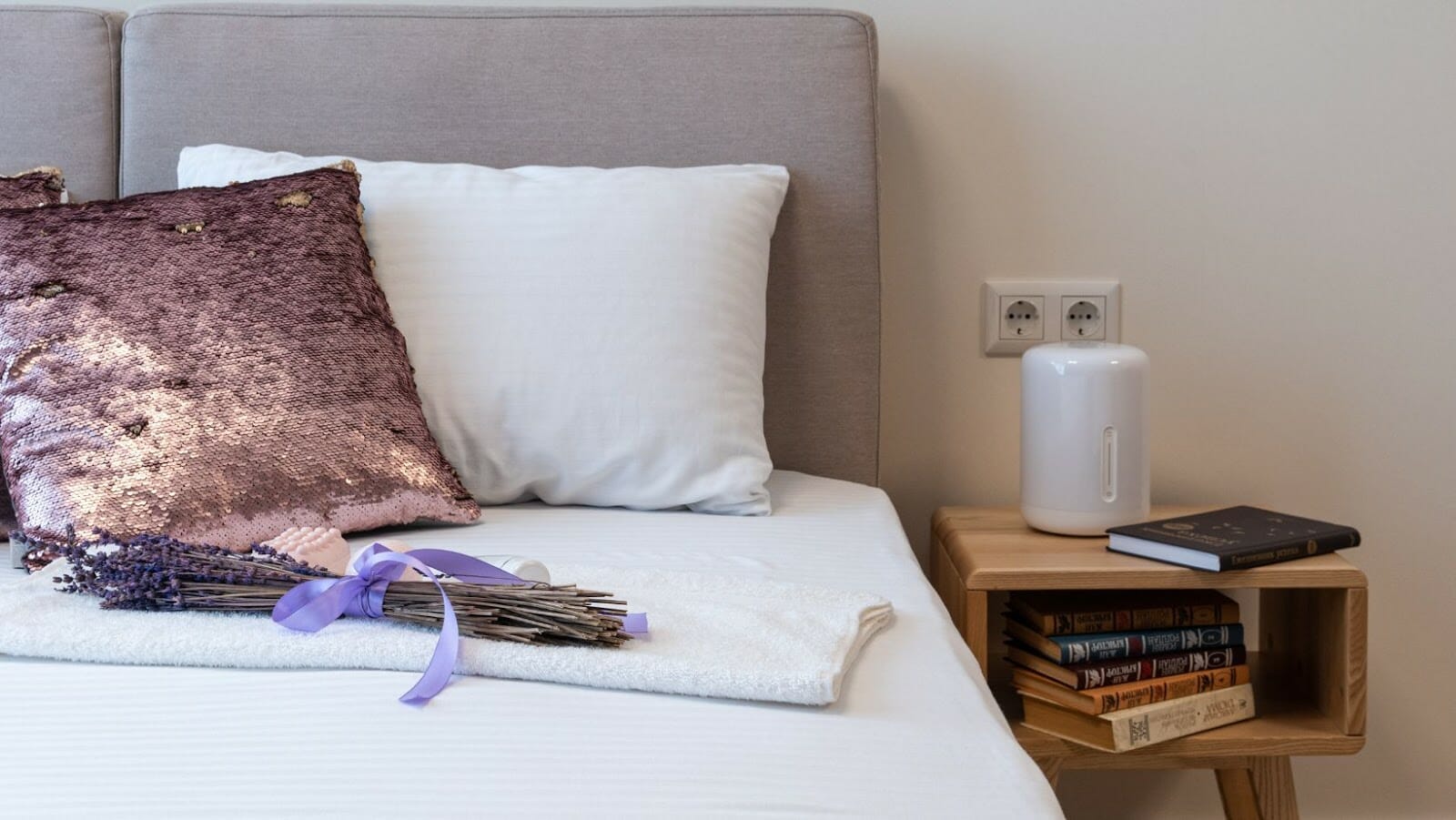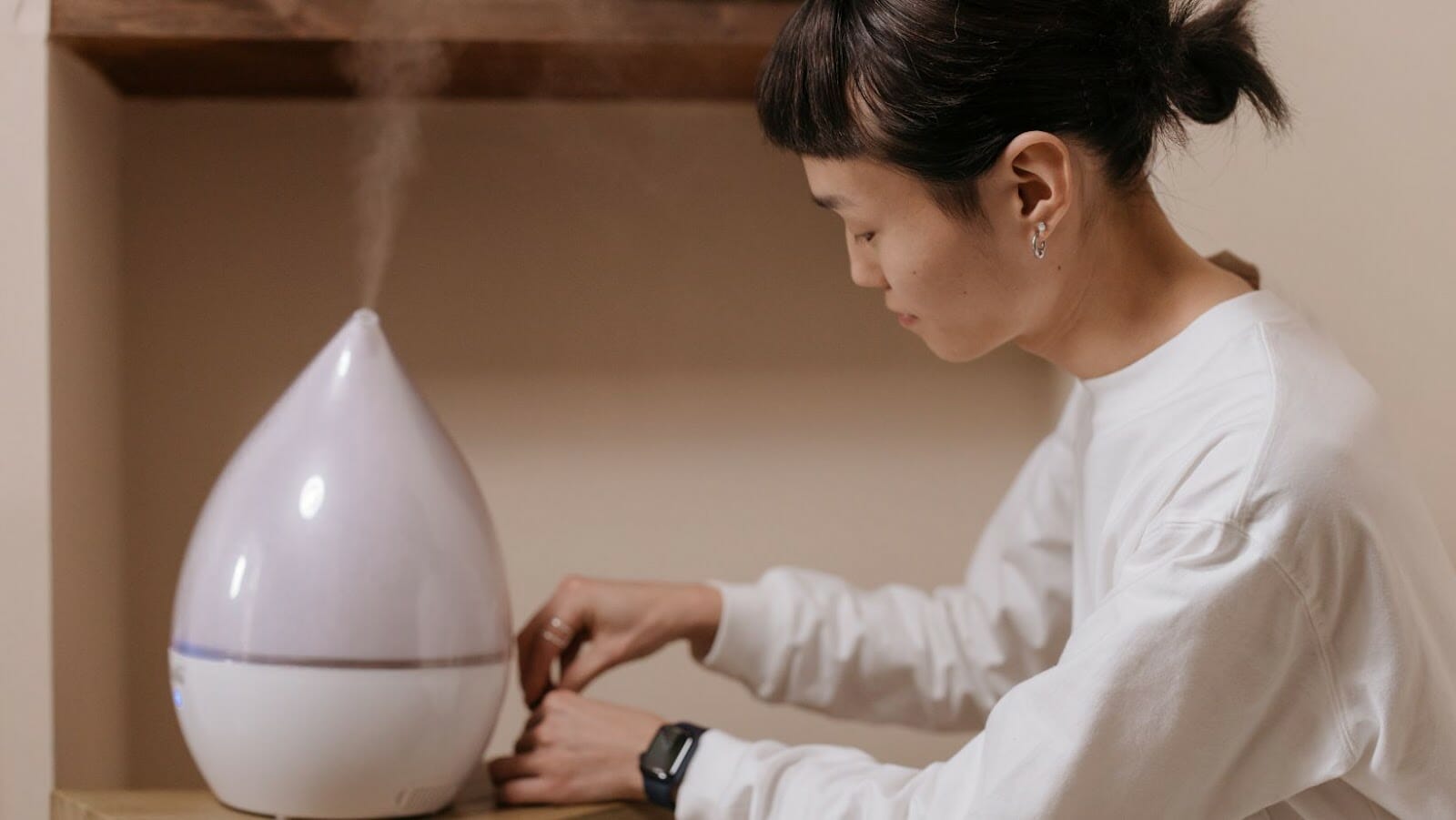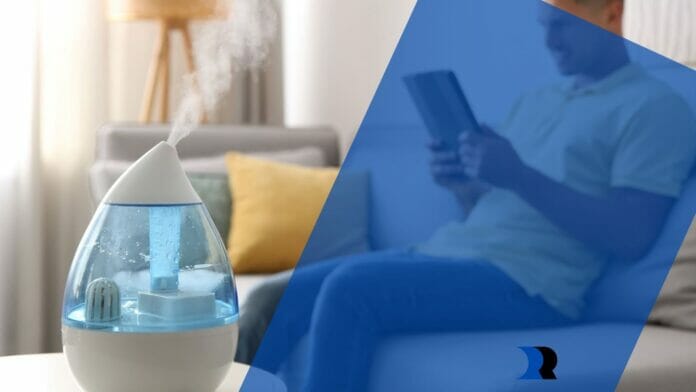In the case of allergies related to the upper respiratory tract, i.e. allergies to dust, dust mites, pollen, dander, etc., it is worth considering what causes these symptoms to flare up, and how dry air affects allergic complaints.
In the case of inhalant allergies, while having too low a level of humidity in the rooms where you spend the most time, a humidifier is definitely advisable. Especially during the heating season, when there is a doubled amount of dust in the apartment.
What Kind of Humidifier to Choose for Allergies
If a severe allergy, in addition, involves a child or an elderly person – then it is worth reaching for a steam humidifier, through which sterilized water (previously heated to a very high temperature) is released into the air. Of course, the rule is that you should keep the device out of reach of hands, furniture, books, etc. This is an effective but rather expensive solution, as steam humidifiers are not energy-efficient devices.
If you do not care about sterility and are more focused on energy efficiency and a wider range of the humidifier – choose an evaporative humidifier, but necessarily with additional filters (HEPA, carbon). Evaporation is a natural, quiet, and effective method of humidification and is as advisable as possible for allergies (the water droplets released into the air are purified with filters). Why not an ultrasonic humidifier? Despite its high efficiency, in the case of humidification, water vapor was broken down into microparticles is returned to the air, not water droplets (it’s not the same!).
This may be the best solution for our floors, furniture, or books (moisture does not settle on them as much), but it is more likely that allergens will remain in the air along with the water vapor. Remember that humidifiers are not air purifiers. To a large extent, they catch a lot of contaminated particles, but they will not do it as effectively as purifiers. We recommend reading the article – Levoit Air Purifier Red Light.
How to Increase the Effectiveness of the Humidifier
Hygiene – to prevent the growth of bacteria and viruses, wash the tank and change the water frequently. By doing so, you will not only improve air quality, but also extend the life of the device. It’s also worth remembering to clean it regularly to remove dust and dirt from various surfaces in the house. Put the humidifier in the right place – avoid putting the humidifier near furniture, books, or radiators. It should stand in such a place to optimally distribute water vapor.
Support yourself with an air purifier – their availability on the market, as well as in our online store, is very large. For allergy sufferers, a humidifier is a useful device that relieves symptoms, but an air purifier is even more effective, as it removes even the smallest polluted particles from the air. While we’re on the subject of “supplementary” devices, it’s worth mentioning salt aerosol generators, or the so-called “home salt cave.” This device breaks down particles of salt, bromine, etc. into micro-particles that penetrate the bronchi, lungs, and alveoli, thus disinfecting the respiratory tract.

The iodine and bromine contained in the salt dilute and liquefy the secretions, the mucous membrane is moistened and its swelling is reduced. It must be admitted that the action of such a brine generator is more effective than nebulization (in addition, you do not need to hold a mask to your face, which can be problematic in the case of small children). A brine generator is also a great solution for recurrent upper respiratory diseases. A good air purifier removes up to 99.97% of pollutants. The air we breathe indoors can contain fungi, bacteria, dust particles, pet dander, dust mites and other allergens, and even smog components.
With Regular Use of the Purifier, You will be Able to Remove From The Air
- allergens
- viruses, bacteria, dust mites
- dust
- smog particles
- dust
- cigarette smoke and bad odors
- mechanical and gaseous contaminants
Allergic in the Office – How Do Electronic Devices Affect the Air?
All electronic devices heat the air. With insufficient ventilation and no plants, the level of optimal humidification decreases (the air becomes dry). This contributes to the dryness of the mucous membranes of the nose, throat, and eyes, and headaches and fatigue occur. This has a direct impact on reducing productivity. All electronic devices attract dust, which settles on surfaces. All electronic devices emit positive ions.
Their excess in the air leads to ion imbalance. An excess of positive ions is detrimental to our well-being. It causes migraines, and weakness, and negatively affects concentration and decision-making. Electronic devices emit inert electromagnetic radiation (which can cause cancer). The noise of cooling fans is deconcentrating. A switched-on monitor is a source of radiation. Electronic devices also negatively affect our psyche (stress due to equipment failure, network problems, etc.).
What Should be Characterized by a Humidifier for the Office?
A solution that really works in any office is a humidifier. It should be adapted to the size of the office and the people working in it. The humidifier should be easy to use and have a large water tank. Humidifiers often come with additional functions. It is worth looking for a humidifier with an ionizer function, which will help remove excess positive ions in the air.

A useful feature in a humidifier is also the option of aromatherapy (such as the Air&me Clevair 2 humidifier with aromatherapy function) – the effect of fragrances on the human body has been studied many times. Incorporating scent into your environment can enhance relaxation, improve mood, and even support better sleep. For a more refined experience, AromaTech diffusers offer premium scenting solutions that blend seamlessly with any interior. In the office, a natural essential oil with the scent of energizing citrus will work best, which stimulates and improves the mood. Also, ideal for the office is the purchase of a 2-in-1 device, a purifier with a humidifier (such as Stylies Aquarius).
Humidifier for an Allergy Sufferer for the Office – What Will Work Best?
For the office, we do not recommend a steam humidifier – it consumes a lot of electricity and emits too much moisture. In the office, this is not a good combination. It is better to use an ultrasonic humidifier in the office. It has the largest range and does not require much attention from the user. Besides, it is better for rooms with electronic devices because of its technology of breaking water into micro-particles that do not cause too much moisture. An evaporative air humidifier will also work well in the office. It is easy to use and works well in rooms where there is generally no excessive problem with air dryness outside the heating season (home office). In office buildings, excessive dryness of the air is the norm.


